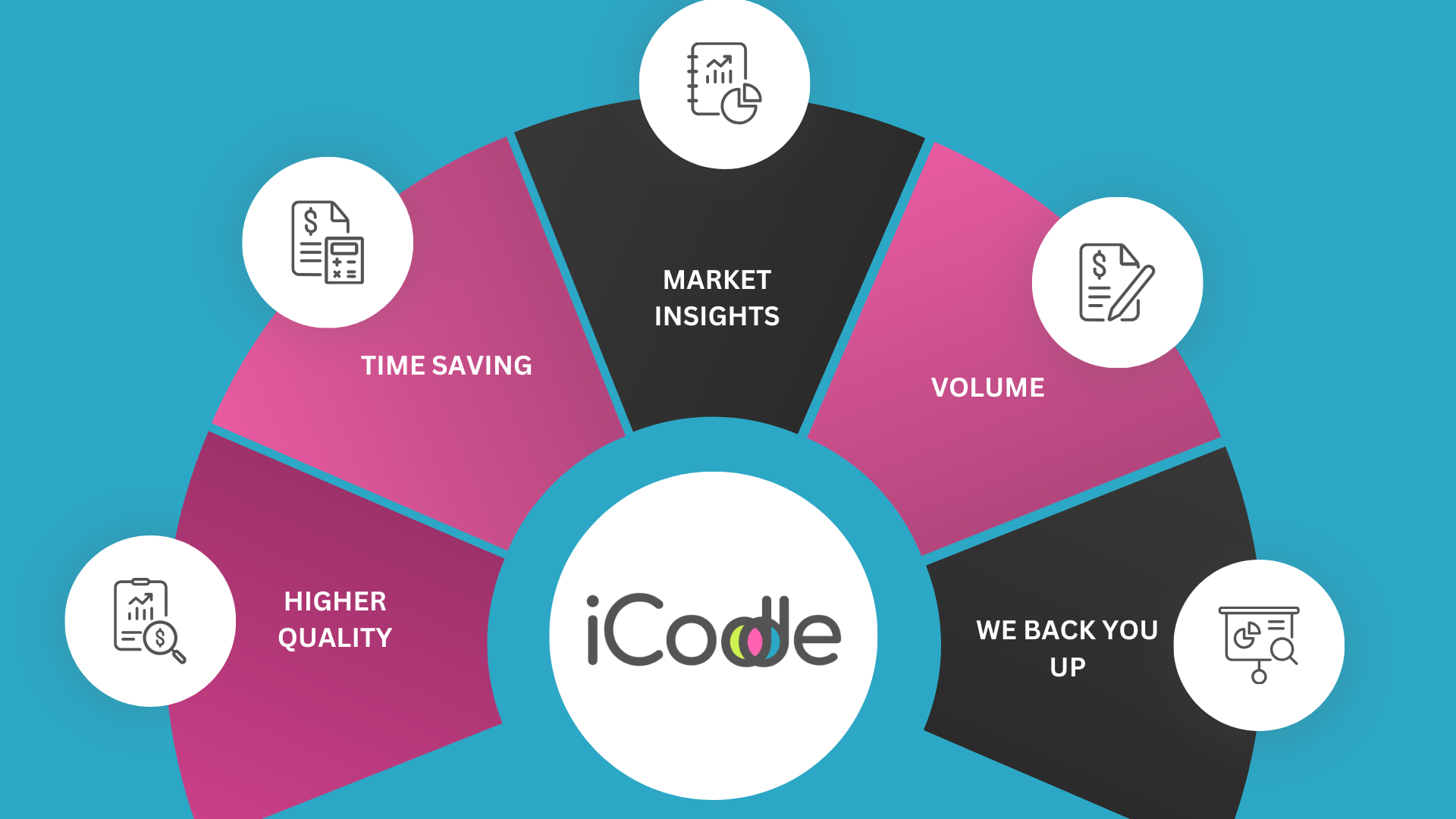Topic: The Transformative Power of Finance Technology
The finance industry is undergoing a seismic shift, driven by the rapid adoption of advanced technologies like AI, blockchain, and data analytics. For finance professionals, particularly those involved in finance transformation initiatives, staying abreast of these innovations is not just beneficial—it’s critical. This weekly digest series, “Innovations in Finance Transformation,” aims to highlight the latest trends, tools, and technologies that are revolutionizing financial operations, risk management, and overall business strategy.
Analysis: Navigating the Latest Trends in Finance Technology
The finance technology landscape is evolving at an unprecedented pace, spurred by advancements in AI, data analytics, and integrated financial platforms. For professionals focused on finance transformation, staying ahead of these trends is essential to driving efficiency, improving decision-making, and maintaining a competitive edge. Let’s delve into some of the most significant trends and their implications for finance teams leveraging platforms like Oracle, OneStream Software, and SAP.
- AI and Machine Learning in Finance: A Strategic Advantage
Overview: Artificial Intelligence (AI) and Machine Learning (ML) are increasingly integral to modern finance practices, automating complex tasks such as financial forecasting, risk assessment, and anomaly detection. These technologies enable finance teams to process vast amounts of data more accurately and efficiently, leading to more informed decision-making and proactive risk management.
Implications for Finance Professionals: AI’s impact on finance is transformative. For instance, Oracle’s AI-driven applications, such as Oracle Autonomous Database, can analyze financial data to identify trends and anomalies, helping finance teams detect potential risks before they escalate. Similarly, SAP’s AI-powered tools, including SAP Leonardo, offer predictive analytics that can forecast financial outcomes with a high degree of accuracy. For organizations using OneStream Software, AI can streamline financial consolidation and reporting processes, ensuring faster and more accurate financial close cycles.
Challenges: Despite the benefits, the adoption of AI in finance comes with challenges, particularly around data quality and algorithmic transparency. Finance professionals must ensure that AI models are trained on accurate, representative data and that the decision-making processes are transparent to maintain regulatory compliance and stakeholder trust.
Key Takeaways:
- Data Integrity: Invest in data management practices to ensure that the data used in AI models is accurate and reliable.
- Transparency: Implement AI solutions that offer clear insights into how decisions are made, fostering trust and compliance.
- Blockchain for Financial Transactions: Enhancing Security and Transparency
Overview: Blockchain technology is revolutionizing the way financial transactions are recorded and verified. By providing a secure, decentralized ledger, blockchain enhances transparency, reduces fraud, and streamlines the audit process. This technology is particularly valuable for organizations involved in cross-border transactions or complex supply chains.
Implications for Finance Professionals: The implementation of blockchain can significantly enhance the security and efficiency of financial transactions. Oracle, for example, offers a Blockchain Cloud Service that enables secure and verifiable transactions across its financial applications. SAP’s blockchain solutions, integrated with its financial modules, allow for seamless tracking and verification of transactions, reducing the risk of fraud and error. OneStream Software is also exploring blockchain to enhance its financial transaction capabilities, offering a more secure and transparent way to manage financial data.
Challenges: Blockchain adoption in finance is still in its early stages, and its integration with existing financial systems can be complex. Additionally, there is a need for industry-wide standards and regulations to ensure the interoperability of blockchain networks and compliance with financial regulations.
Key Takeaways:
- Pilot Projects: Start with small-scale blockchain implementations to assess its benefits and challenges in your financial operations.
- Standardization: Collaborate with industry peers and regulatory bodies to develop standards that facilitate broader blockchain adoption in finance.
- Robotic Process Automation (RPA) in Financial Operations: Driving Efficiency
Overview: Robotic Process Automation (RPA) is transforming financial operations by automating routine, repetitive tasks such as data entry, invoice processing, and reconciliations. RPA tools can perform these tasks faster and with greater accuracy than human workers, freeing up finance teams to focus on higher-value activities.
Implications for Finance Professionals: RPA can significantly enhance the efficiency of financial operations. For instance, Oracle’s RPA tools are integrated with its ERP systems, automating tasks like accounts payable and receivable processes. SAP’s Intelligent Robotic Process Automation (IRPA) platform offers similar capabilities, enabling organizations to streamline their financial operations and reduce manual errors. OneStream Software also leverages RPA to automate data integration and reporting, ensuring a more efficient financial close process.
Challenges: While RPA offers significant benefits, its implementation can be challenging, particularly in complex financial environments. Finance teams need to carefully map out processes to identify which tasks are best suited for automation and ensure that the RPA tools are properly integrated with existing financial systems.
Key Takeaways:
- Process Mapping: Conduct a thorough analysis of your financial processes to identify tasks that can be automated with RPA.
- Integration: Work closely with IT teams to ensure that RPA tools are seamlessly integrated with your existing financial systems.
- Advanced Analytics and Business Intelligence: Unlocking Insights
Overview: Advanced analytics and business intelligence (BI) tools are empowering finance teams to extract deeper insights from their data. By leveraging these tools, finance professionals can identify trends, forecast future financial performance, and make data-driven decisions that drive business growth.
Implications for Finance Professionals: Advanced analytics is a cornerstone of modern finance transformation. Oracle Analytics Cloud, for instance, provides powerful BI capabilities that allow finance teams to visualize data, perform ad-hoc analysis, and generate predictive models. SAP Analytics Cloud offers similar features, enabling organizations to gain a comprehensive view of their financial performance. OneStream Software’s BI capabilities are also highly regarded, offering real-time analytics and reporting that support more informed decision-making.
Challenges: The primary challenge with advanced analytics is the need for skilled professionals who can interpret complex data sets and translate them into actionable insights. Additionally, organizations must ensure that their data governance practices are robust to maintain data quality and compliance.
Key Takeaways:
- Skill Development: Invest in training for finance teams to enhance their data analysis and interpretation skills.
- Data Governance: Establish strong data governance practices to ensure the accuracy and reliability of your financial data.
- Cloud-Based ERP Systems: The Backbone of Finance Transformation
Overview: Cloud-based Enterprise Resource Planning (ERP) systems are at the heart of finance transformation. These platforms integrate various financial functions, such as accounting, procurement, and project management, into a single, cohesive system. The shift to cloud-based ERP systems allows organizations to enhance scalability, reduce IT costs, and improve access to real-time financial data.
Implications for Finance Professionals: Cloud-based ERP systems are revolutionizing the way finance teams operate. Oracle Cloud ERP, for example, offers a comprehensive suite of financial management tools that support everything from financial planning to compliance. SAP S/4HANA, another leading cloud-based ERP solution, provides real-time insights into financial performance and integrates with other SAP modules to offer a holistic view of the organization’s operations. OneStream Software’s platform is also cloud-based, offering unified financial planning, consolidation, and reporting capabilities that streamline finance transformation efforts.
Challenges: Migrating to a cloud-based ERP system can be a complex and resource-intensive process. Finance teams must carefully plan the transition to minimize disruptions and ensure that the new system integrates smoothly with existing processes and tools.
Key Takeaways:
- Migration Planning: Develop a detailed migration plan that outlines the steps needed to transition to a cloud-based ERP system.
- Change Management: Implement a robust change management strategy to ensure a smooth transition and user adoption.

Practical Application: Implementing Finance Technology Innovations for Organizational Success
Adopt AI-Powered Tools:
- Strategy: Identify specific areas within your financial operations where AI can add the most value, such as financial forecasting or risk assessment. Oracle’s AI-driven financial tools can help automate these processes, providing real-time insights that improve decision-making.
- Real-Life Example: Oracle Autonomous Database leverages AI to automatically patch, tune, and back up data, reducing the risk of human error and freeing up resources for strategic initiatives. This has allowed companies to enhance their financial data accuracy and streamline operations.
- Actionable Steps:
- Evaluate your current financial processes to determine where AI can provide the most significant impact.
- Select AI tools that align with your organization’s needs and budget.
- Pilot the tool in a specific financial function to assess its effectiveness.
- Train your finance team on how to effectively use AI-driven tools.
- Continuously monitor the tool’s performance and adjust its parameters as needed.
Explore Blockchain Solutions:
- Strategy: Implement blockchain for secure and transparent financial transactions, especially in areas involving complex supply chains or cross-border payments. Oracle’s Blockchain Cloud Service is a valuable tool for ensuring transaction integrity and security.
- Real-Life Example: SAP’s blockchain integration has enabled companies like Coca-Cola to enhance their supply chain transparency, ensuring that every transaction is securely recorded and easily auditable. This reduces the risk of fraud and improves compliance with regulatory standards.
- Actionable Steps:
- Begin with a small-scale blockchain implementation in a specific area of your financial operations, such as credential verification or cross-border transactions.
- Partner with a blockchain service provider to ensure a smooth integration with your existing systems.
- Educate your finance team on the benefits and operations of blockchain technology.
- Regularly review the blockchain system’s performance and make necessary updates to ensure continued effectiveness.
Integrate RPA in Financial Operations:
- Strategy: Focus on automating routine financial tasks like invoice processing or reconciliations using RPA tools integrated with your existing ERP systems, such as SAP’s IRPA or Oracle’s RPA offerings.
- Real-Life Example: OneStream Software’s integration of RPA has enabled organizations to automate data integration processes, significantly reducing the time and effort required for financial reporting. This has led to a faster, more accurate financial close process.
- Actionable Steps:
- Identify repetitive financial tasks that are ideal candidates for automation.
- Implement RPA tools that seamlessly integrate with your current ERP system.
- Monitor the impact of RPA on operational efficiency and make adjustments as needed.
- Train your finance team on the RPA tools to ensure they can effectively manage and troubleshoot the system.
Leverage Advanced Analytics for Strategic Decision-Making:
- Strategy: Utilize advanced analytics tools to extract actionable insights from your financial data. Oracle Analytics Cloud and SAP Analytics Cloud are powerful platforms that offer predictive modeling and data visualization capabilities.
- Real-Life Example: SAP’s Analytics Cloud has been instrumental in helping organizations like Siemens visualize and analyze their financial data, leading to more informed strategic decisions and better financial outcomes.
- Actionable Steps:
- Implement advanced analytics tools that align with your financial goals.
- Develop a data governance strategy to ensure the accuracy and reliability of the data used in your analytics processes.
- Train your finance team on how to interpret data visualizations and predictive models.
- Regularly review the insights generated by your analytics tools to inform your financial strategy.
Transition to Cloud-Based ERP Systems:
- Strategy: Migrate your financial operations to a cloud-based ERP system to enhance scalability, reduce IT costs, and improve access to real-time financial data. Oracle Cloud ERP and SAP S/4HANA are leading solutions in this space.
- Real-Life Example: A global manufacturer transitioned to Oracle Cloud ERP to streamline its financial operations, resulting in a 25% reduction in financial close time and improved data accuracy across its global subsidiaries.
- Actionable Steps:
- Develop a detailed migration plan that includes a timeline, resource allocation, and risk mitigation strategies.
- Engage stakeholders across the organization to ensure buy-in and support for the migration.
- Provide comprehensive training for your finance team on the new ERP system.
- Monitor the system’s performance post-migration and make adjustments as needed to optimize its use.
Conclusion: Embracing Finance Technology for a Competitive Edge
As finance technology continues to evolve, finance professionals and organizations must stay ahead of the curve by embracing these innovations. Whether through AI, blockchain, RPA, advanced analytics, or cloud-based ERP systems, the opportunities for enhancing financial operations and driving business success are vast.
For finance professionals, particularly those involved in finance transformation, the integration of these technologies is not just about improving efficiency—it’s about leading the industry into the future. By leveraging platforms like Oracle, OneStream Software, and SAP, you can create a more agile, data-driven, and secure financial environment that supports long-term growth and stability.
References:
- Oracle Autonomous Database Case Study – Oracle.com
- SAP Blockchain Solutions – SAP.com
- RPA in Finance with OneStream – OneStreamSoftware.com
- AI in Finance – Forbes
- Blockchain Technology in Financial Services – TechCrunch
- Advanced Analytics in Finance – Harvard Business Review
- Cloud-Based ERP Migration – Gartner
- Siemens Case Study on SAP Analytics Cloud – Siemens.com
- RPA in Financial Operations – McKinsey.com
- Finance Transformation with Oracle Cloud ERP – Oracle.com
After exploring how to maximize ROI in your finance transformation efforts, take the next step by partnering with iCodde.com—a leader in recruitment technology. Visit our website to learn how we can help your company attract top-tier talent and drive lasting success.










